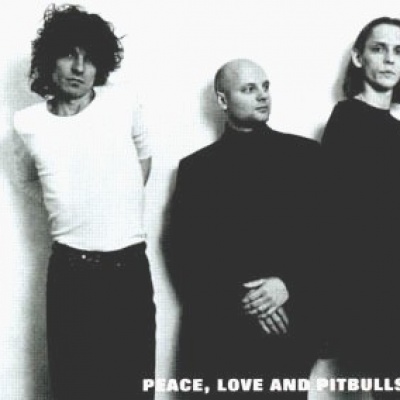
Peace Love & Pitbulls
by Lars LovénPeace, Love & Pitbulls' industrial rock only received token admiration from the critics, and less than that from most of Joakim Thåström's fans. But though the group never reached a very big audience, Thåström himself has held this period as one of the most important in his career, second only to his time with Ebba Grön. When his next band, alternative rockers Imperiet, broke up in 1988, Thåström set out on a solo career. After releasing a self-titled debut at home, he moved to Amsterdam and released Xplodera Mig 2000. Influences from industrial rock and techno can be heard here, but the transition was not finished until he formed Peace, Love & Pitbulls in 1992. This was first regarded as a solo album, but the group backing Thåström -- programmer Nick Hell, guitarist and bassist Nicklas Sporrong, and guitarist Peter Puders -- proved to be long-lasting. The second album, Red Sonic Underwear, was well-received in some underground circles, but due to the genre, didn't sell very much. Puders left before the release of the third album, PLP3, where the hard industrial beats had been replaced by a dark sound influenced by '80s synth. This album received more attention than the previous two, but when a commercial breakthrough for Peace, Love & Pitbulls seemed to be in sight, the band broke up. According to Thåström, the time with Peace, Love & Pitbulls was when he learned to love music again and write songs. Most of his fans may not agree, but when he returned with the solo album Det Är Ni Som e Dom Konstiga, Det Är Jag Som e Normal in 1998, his attitude was more secure and relaxed than ever -- for good and bad.
